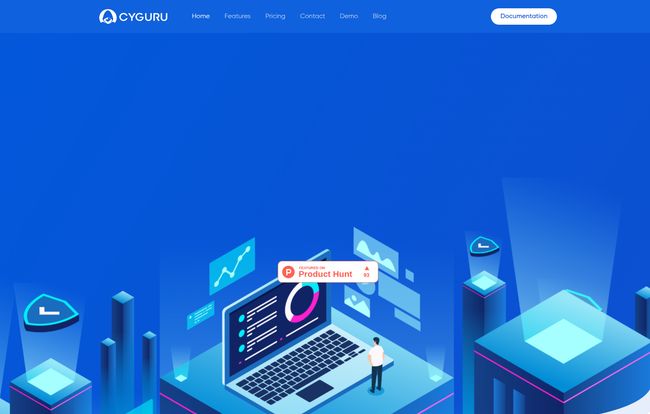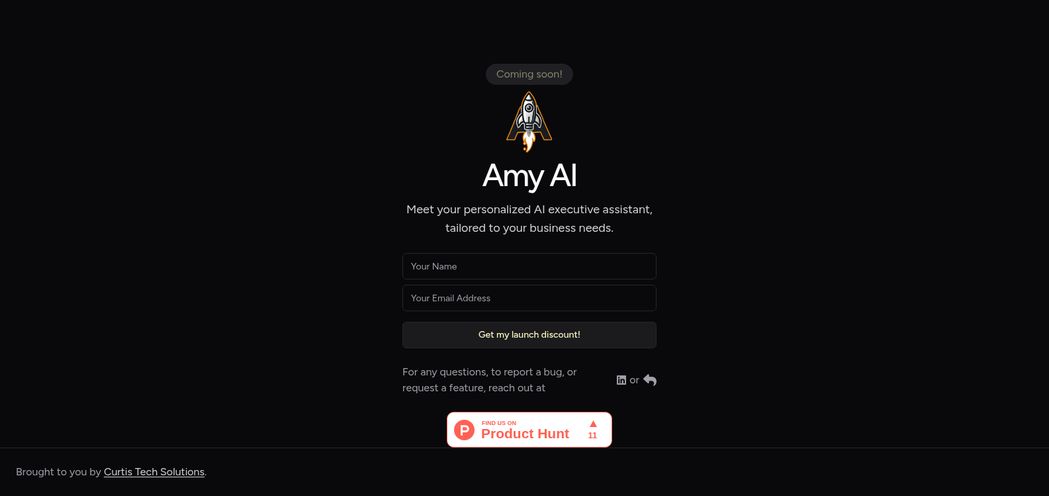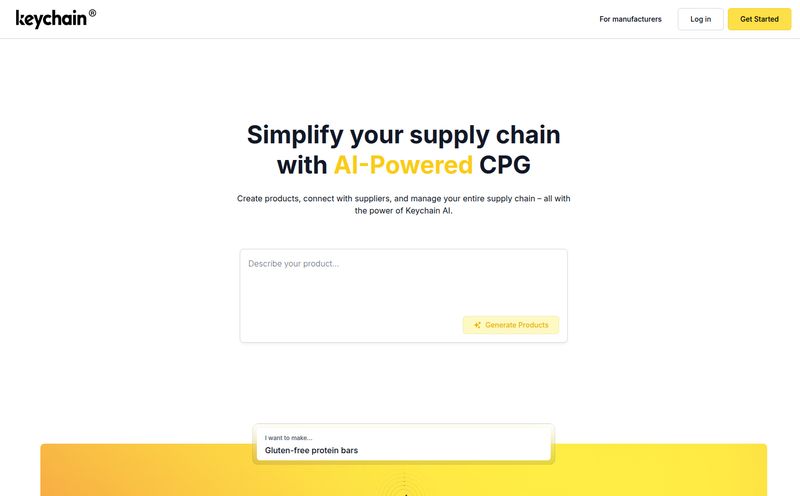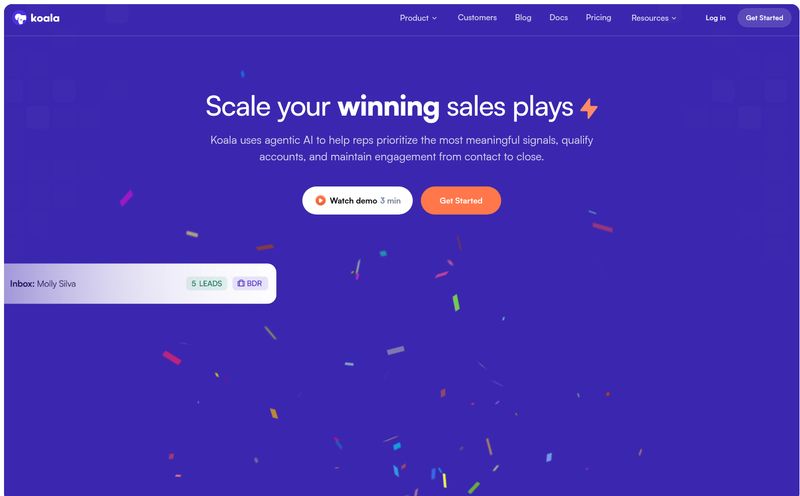How’s your alert fatigue doing? That low-grade, constant hum of notifications from every security tool you own. It’s the digital equivalent of a dripping faucet, and some days, it’s enough to make you want to throw your monitor out the window. We’ve all been there, staring at a dashboard with hundreds of low-priority alerts, trying to find the one real threat hidden in the noise. It's exhausting.
For years, the solution was either to hire more people (expensive) or buy more complex tools (also expensive, and often just creates more alerts). But the ground is shifting. I’ve been keeping a close eye on the rise of AI in security ops, and I recently got a chance to look into a platform called Cyguru. It claims to be an “auto-powered AI analyst,” basically a Security Operation Center in a box.
So, does it live up to the hype? Or is it just another layer of complexity? Let's get into it.

Visit Cyguru
What is Cyguru, Exactly?
At its heart, Cyguru is a Security Operation Center as a Service (SOCaaS). But that’s a mouthful of industry jargon. Think of it like this: It’s an AI brain that you plug into your security infrastructure to automatically handle the first two tiers of security analysis. It’s built specifically to work on top of Wazuh, the popular open-source Security Information and Event Management (SIEM) platform.
If you're not familiar, Wazuh is a fantastic, robust tool for collecting and analyzing security data. But like any powerful tool, it requires a knowledgeable hand to wield it effectively. Cyguru’s whole pitch is that it provides that knowledgeable hand, automatically. It connects to your Wazuh setup and starts sifting through alerts, investigating them, and bubbling up only the incidents that a human really needs to see. It’s designed to give you a fully functioning SOC with just a few clicks, which is a pretty bold claim.
The Core Features That Actually Matter
A feature list is just a list until you understand how it makes your life easier. Here’s my breakdown of what Cyguru brings to the table.
Automated L1 & L2 Threat Analysis
This is the absolute core of the product. In a traditional SOC, Level 1 and Level 2 analysts handle the initial triage. They investigate every alert, weed out the false positives, and escalate the real problems. It’s critical work, but it's also repetitive. Cyguru automates this. It’s like having a junior security analyst who’s powered by caffeine and code, and never, ever asks for a day off. This frees up your human experts—or, if you’re a one-person IT shop, it frees up you—to focus on strategic defense and responding to genuine threats.
A Centralized Security Dashboard
I have a personal vendetta against having to switch between a dozen different tabs to get a clear picture of my security posture. Cyguru brings everything into what the industry loves to call a “single pane of glass.” It’s one central command center where you can see vulnerabilities, configuration assessments, and active threats across your entire environment—whether it's Windows, Linux, macOS, or devices sending Syslog data. It’s clean, it’s integrated, and it stops the madness of context switching.
Seamless Wazuh SIEM Integration
This is less a feature and more the foundation of the whole thing. Cyguru isn’t trying to reinvent the wheel; it’s making an existing wheel much, much better. If you’re already a Wazuh user, the integration is incredibly straightforward. It's built for it. This isn't some clunky, API-bolted-on-as-an-afterthought integration. It’s native. This approach is smart, because it allows Cyguru to build on a trusted, powerful open-source project that already has a massive community.
Keeping the Auditors Happy
Ah, compliance. The part of security that everyone loves to hate. Cyguru includes tools to help manage compliance with standards like GDPR, HIPAA, and PCI DSS. It automates a lot of the monitoring and assessment required to prove you're meeting these mandates. It won’t file the paperwork for you, but it will give you the data and evidence you need, making audit season a little less painful.
My Honest Take on Cyguru
Alright, let's get down to the brass tacks. No tool is perfect, and it’s all about finding the right fit for your situation.
The Good Stuff
The AI-driven alert analysis is, without a doubt, the star of the show. Seeing it automatically investigate and close out low-level noise is genuinely impressive. For a small or medium-sized business that can’t afford a 24/7 SOC team, this is a massive force multiplier. The ease of deployment is another huge win. The promise of getting a SOC up and running in a few clicks is pretty close to reality, especially if you have Wazuh in place already. It just works.
The Potential Downsides
Now, for the other side of the coin. The free plan is both a blessing and a curse. It’s fantastic that you can get the core services for free with a lifetime license. But here's the catch: it comes with no support and no updates. In the fast-moving world of cybersecurity, running on software that doesn’t get updates is a risky proposition. I see the free plan as an incredible, extended trial or something for a home lab, but I'd be very hesitant to run it in a live business environment.
The other point is its reliance on Wazuh. If your company is already standardized on Splunk, QRadar, or another SIEM, then Cyguru just isn't for you. It's not a general-purpose AI layer; it’s a Wazuh-specific one. That’s not a flaw, just a specialization to be aware of.
Let's Talk Money: Cyguru Pricing Explained
The pricing structure is pretty clear, which I appreciate. No need to sit through a 90-minute sales demo just to get a number.
| Plan | Price | Best For |
|---|---|---|
| Cyguru (Free) | €0 | Testing, proof-of-concept, or personal labs. Includes core services but crucially lacks support or updates. |
| Professional | Starts at €1,000 (Annual) | Most businesses. This plan includes the full support and regular updates you need for a production environment. |
| Enterprise (SMMsP) | Custom Pricing | Managed Security Service Providers (MSSPs) and other security providers who need to deliver SOC services at scale. |
For more specific details, you can always check their pricing page directly.
So, Who Should Use Cyguru?
After looking it all over, the ideal user profile for Cyguru becomes pretty clear.
It's a fantastic fit for small to medium-sized businesses (SMBs) that are already using Wazuh or are open to adopting it. These are companies that need enterprise-grade security but don’t have an enterprise-grade budget for a full-time security team. It's also great for overburdened IT departments where a few people wear many hats, including the security hat. Cyguru can take a huge load off their plate.
On the other hand, if you're a massive corporation with a deeply entrenched, custom-built security stack and a team of 50 SOC analysts, this probably isn’t for you. You've already built the thing that Cyguru aims to provide. Similarly, if you're committed to a different SIEM platform, the conversation is a non-starter.
Final Thoughts
Cyguru is a really interesting and, I think, important product in the current cybersecurity space. It’s not trying to be everything to everyone. Instead, it’s a specialized tool that does one thing very well: it adds a powerful AI automation layer to the excellent and accessible Wazuh platform.
It effectively democratizes the concept of a SOC, making advanced threat detection and response achievable for organizations that could previously only dream of it. While the free plan is more of a gateway than a final destination for any serious business, the paid plans offer a clear path to a more secure, less stressful operational reality.
If you're in the Wazuh ecosystem and drowning in alerts, you should absolutely give Cyguru a look. It might just be the AI analyst you’ve been waiting for.
Frequently Asked Questions
- 1. What is SOCaaS?
- SOCaaS stands for Security Operation Center as a Service. It's a subscription-based model where an organization outsources its security monitoring and management to a third-party provider. Cyguru offers this by providing the AI-powered software that acts as the 'service'.
- 2. Do I need to have Wazuh to use Cyguru?
- Yes, Cyguru is designed specifically to integrate with and enhance the Wazuh SIEM. It's not a standalone product and relies on Wazuh for its data collection and core engine.
- 3. Is the free Cyguru plan really suitable for a business?
- In my opinion, the free plan is best for evaluation, testing, or non-critical environments. The lack of support and security updates makes it a risky choice for any business that relies on its systems for revenue or handles sensitive data.
- 4. What kind of threats can Cyguru detect?
- Since it builds on Wazuh, it can help detect a wide range of threats, including malware, rootkits, intrusions, unauthorized file changes, and misconfigurations across multiple operating systems and devices.
- 5. What kind of support is offered with the Professional plan?
- The Professional plan includes full support and updates. This typically means you'll have access to a support team for technical issues, assistance with configuration, and you'll receive all the latest software patches and feature updates to keep your system secure and effective.
- 6. Can Cyguru replace my entire security team?
- No, and it's not meant to. The goal of a tool like Cyguru is to augment a security team (even if that team is just one person) by automating repetitive tasks. It handles the noise so that human experts can focus on high-level strategy, threat hunting, and complex incident response.
Reference and Sources
- Cyguru Official Website: https://cyguru.io/
- Cyguru Pricing Information: https://cyguru.io/?utm_source=declom#price
- Wazuh - The Open Source Security Platform: https://wazuh.com/



